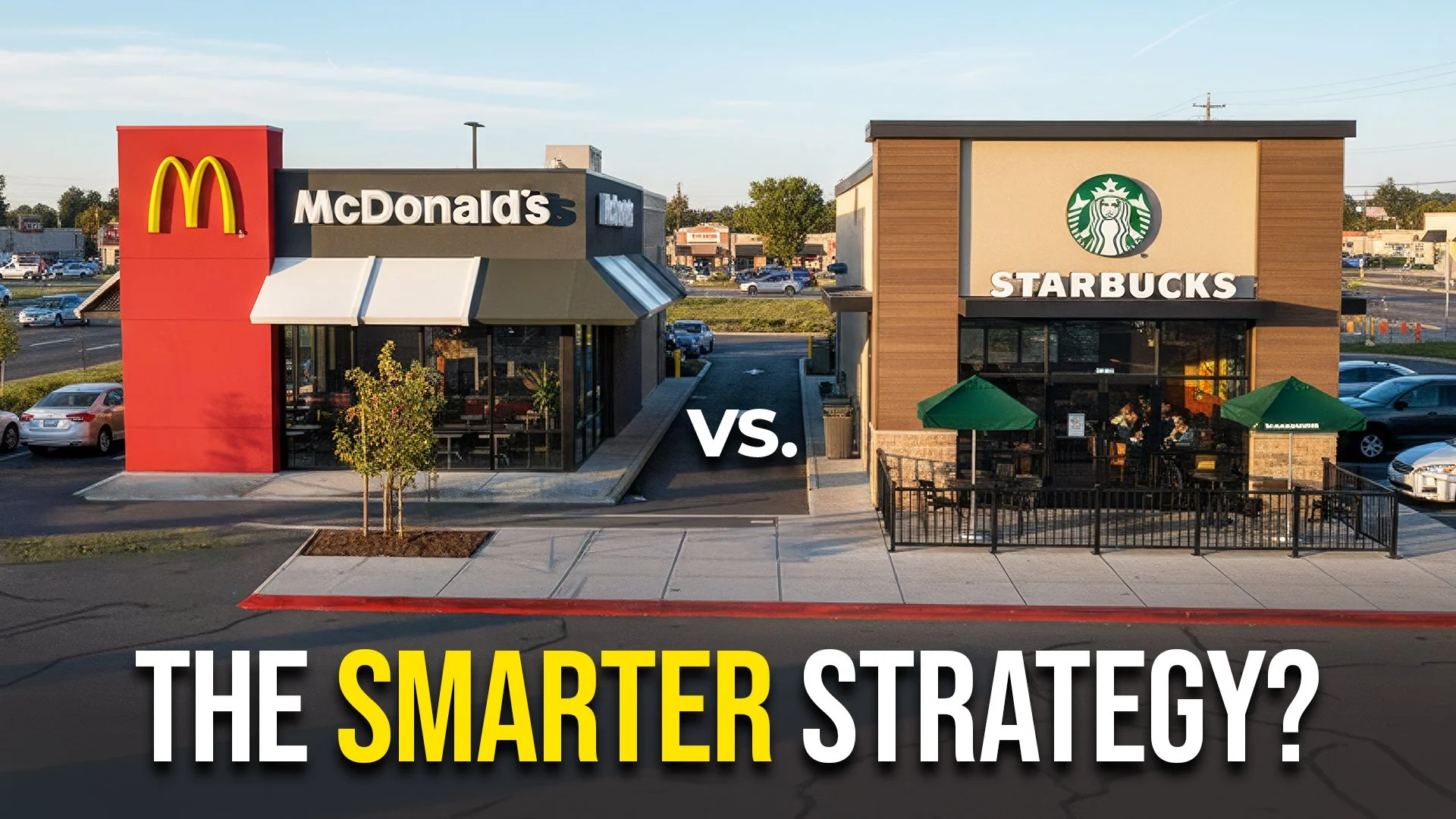What Is ESG Investing?
And Why It Matters
ESG (Environmental, Social, and Governance) is a set of increasingly important criteria that investors consider when looking at opportunities around the globe.
Environmental factors include what sustainability efforts a company is making.
Social factors consider a company's relations with their employees and the local communities that their business impacts.
Governance criteria examines how a company is run (salaries, internal controls, etc.).
Many investors are now beginning to see the ESG potential in real estate as projects can provide a wide range of benefits to the general public, such as the rehabilitation of public spaces, affordable housing (or affordable commercial space for small businesses), and green buildings that can save energy during the construction phase and following completion.
Let’s take a look at why it is important for businesses to understand and adopt ESG principles.
Why ESG Matters
ESG criteria are critical for businesses to understand and pursue because investors are more and more concerned with the social impact of business dealings. Their desire for ESG investments is evident by the amount of available debt for ESG real estate projects, which has steadily increased throughout the past decade.
Beneficial Loan Packages
There are also several different types of loans available for developers, especially those interested in sustainable real estate. Two such loans are green loans and sustainability-linked loans. These loans come with varying restrictions on who may qualify, as well as how the loan actually functions.
Green loans are strictly for green projects (imagine that) and usually have a discounted interest rate compared to standard loans. Sustainability-linked loans, on the other hand, are intended to support sustainable businesses, but the funds may be used for whatever the borrower deems necessary. They also differ from green loans as they have a floating interest rate, which decreases when the borrower meets certain sustainable objectives.
These loan packages with lower interest rates can translate to hundreds of thousands of dollars in savings for a developer and provide a sufficient economic incentive to take environmentally conscious actions. In 2020 alone, there was over $7.5 billion in green loans and almost $6.5 billion in sustainability-linked loans.
ESG Property Certifications Lead to Higher Values
Pursuing certain ESG certifications can also increase the overall value of a property and increase your cash flow. Buildings that have LEED certifications have historically outperformed standard buildings on several different key metrics over a ten year period. LEED certified buildings had:
higher net rents
lower rent concessions
significantly higher occupancy rates
and lower energy consumption
Additionally, pursuing these certifications ensures that the property will maintain its value in the future. Real estate is rapidly moving in the direction of sustainability and conscientious development, so it would be wise to get ahead of the curve now and pursue ESG criteria before it is the standard.
Potential for Future Mandating and Regulation
ESG is becoming an issue of increasing concern to governments around the globe.
The United Nations recently put out a list of sustainable development goals as part of their 2030 Agenda For Sustainable Development. While they are just goals currently, many countries around the world may begin to make these goals a requirement in the next decade. In the United States, the Federal Reserve has also recently added climate change to their list of financial stability risks.
These are both signs that ESG will become more a requirement for businesses, making it imperative that companies educate themselves on ESG principles and implement it into their business plans.
What are the standards for ESG?
The standards for assessing ESG management in real estate are set by the Global Real Estate Sustainability Benchmark (GRESB). The GRESB measures companies and funds on management and policy aspects, as well as their implementation and measurement of ESG principles.
The GRESB measurement is a relative one and compares a property's ESG qualities against their database of submitted properties. The measurement ends up producing a GRESB rating, which is updated annually as new properties come into their database. In other words, a rating is not absolute and is likely to change every year.
Companies can also request Customized Benchmark Reports, which would compare them and their project to a customized peer group. For example, a Nashville based firm could request a customized report that compares them against other Nashville companies. This could give them a greater insight into how they stack up against their local competitions, as well as the areas in which they could improve.
What awards are there for ESG companies/funds?
There are several different awards for companies and funds at the forefront of ESG for real estate.
One set of awards is handed out by the Pension Real Estate Association (PREA). The PREA is a non-profit trade association for the global real estate investment industry. PREA has over 700 member firms across a variety of nations in North America, Europe, and Asia, utilizing these awards to recognize industry leaders and to provide examples of the best implemented ESG funds.
PREA hands out 4 awards each year, with one going to the best open-end and a second to the best closed-end funds. The third award they give out is the momentum award that recognizes the most innovative approaches for funds when dealing with ESG issues. The final award was the emerging manager award which recognized excellence in real estate investment management firms.
The award winners for 2021 were Hines European Core Fund, GID Institutional Multifamily Partners, Green Cities Fund III, and MDH Partners respectively.
How Can I Invest in ESG Real Estate?
If you are looking for real estate investment opportunities that adhere to ESG criteria, you are in luck. There are a handful of companies in the Nashville area that pursue ESG objectives in their commercial real estate projects, but none better than our own Hamilton Development.
Hamilton is at the forefront of the ESG movement, and it is driven to provide affordable and sustainable real estate options for the local entrepreneurial community. These values are reflected in Hamilton’s recent acquisitions, like The Provisionary. While the provisionary is currently an empty lot on Dickerson Pike, it will soon be converted into a mixed use complex that will include restaurants, bars, retail space, micro-office units, and multifamily development. This project seeks to enhance the local neighborhood while making business ownership more inclusive by providing cheaper alternatives to traditional office space.
If you are interested in pursuing ESG criteria in your future investments, visit Hamilton’s website for more information.

![What Is ESG Investing? [And Why It Matters]](https://images.squarespace-cdn.com/content/v1/5c115fec9d5abbba78a23c93/1628002557829-JGYZZWL31KR45QTVEWJT/pexels-photo-886521.jpeg)
![What Is ESG Investing? [And Why It Matters]_What Is ESG Investing- .jpg](https://images.squarespace-cdn.com/content/v1/5c115fec9d5abbba78a23c93/1628003575398-U1DW13RC99KN5S0L7O48/What+Is+ESG+Investing%3F+%5BAnd+Why+It+Matters%5D_What+Is+ESG+Investing-+.jpg)



![What Is ESG Investing? [And Why It Matters]_How Can I Invest in ESG Real Estate-.jpg](https://images.squarespace-cdn.com/content/v1/5c115fec9d5abbba78a23c93/1628003675711-JMQXIBDEW40H53QPR3KF/What+Is+ESG+Investing%3F+%5BAnd+Why+It+Matters%5D_How+Can+I+Invest+in+ESG+Real+Estate-.jpg)


In the video at the center of this post, the argument isn’t “multifamily is dying.” It’s something more subtle - and far more important for serious investors.
Rather than fear-mongering or dramatic predictions, the video highlights that the multifamily investment model that dominated the last decade is quietly evolving. What used to be a relatively straightforward play — buy apartments, collect rents, refinance, repeat — is now being reshaped by forces beneath the surface that most investors don’t talk about enough. The narrative isn’t about fundamentals suddenly disappearing — demand for housing, rent rolls, and occupancy rates remain generally solid - but about what’s changed in capital markets, regulation, and operating economics that are redefining how returns get made today.
Instead of dramatic crashes or hype, the video shows a sector in transition - where the old assumptions about underwriting, leverage, and pricing power no longer hold as reliably as they once did. It’s a reality check rooted in structural shifts rather than emotion-driven narratives. And that’s important: this isn’t about condemning multifamily, it’s about understanding the new game being played.
That sets the stage for this post: not to scare you, but to explain what’s changing underneath the headlines - so you can see where risk is really hiding, and where opportunity still exists.